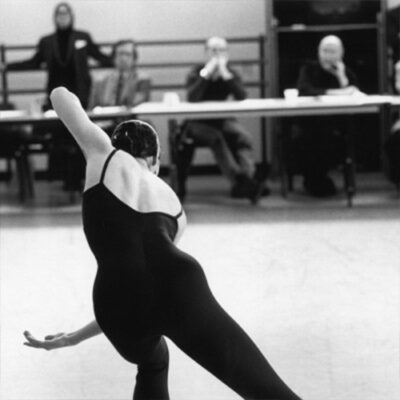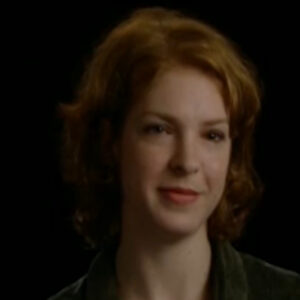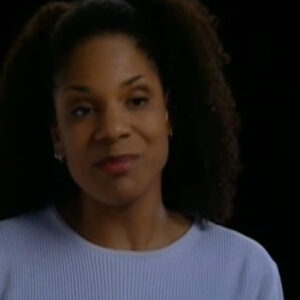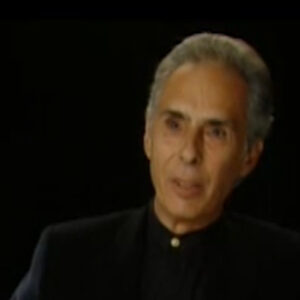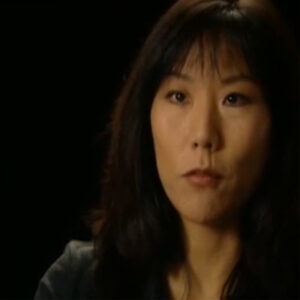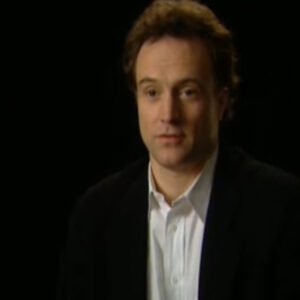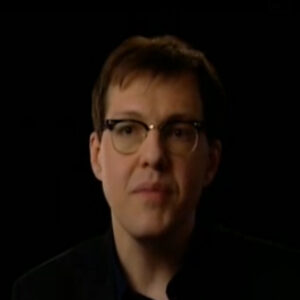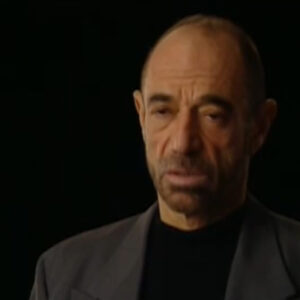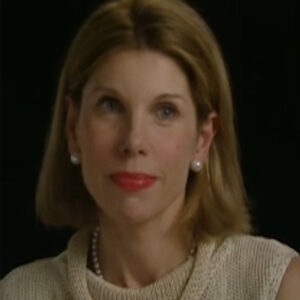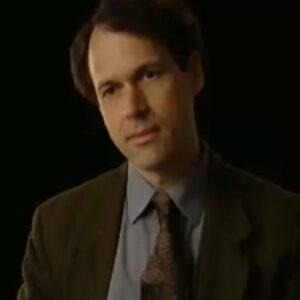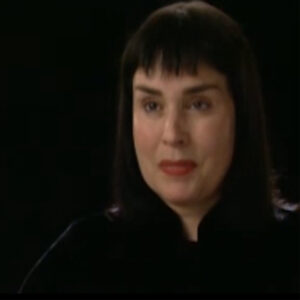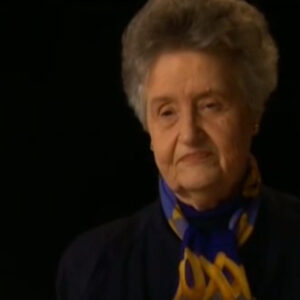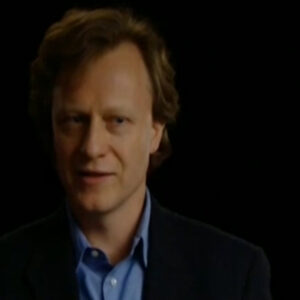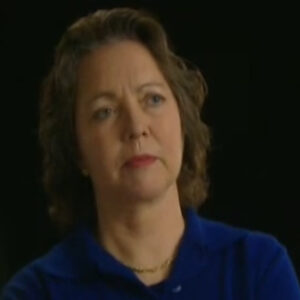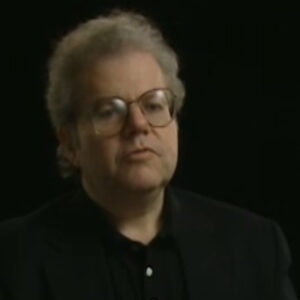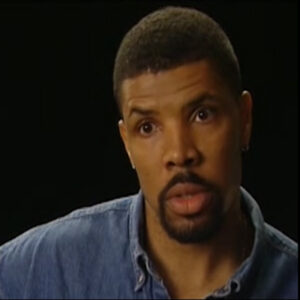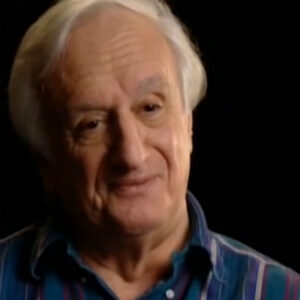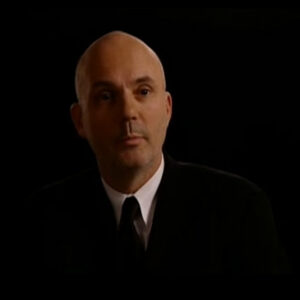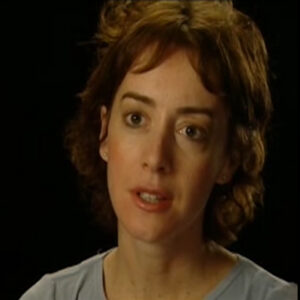Speaker Remember? Well, tell me about going to Juilliard. I mean, what?
Speaker Where did the decision come to to go there and what was its what was its law or what was the. What was truly are known to be that.
Speaker Well, my going to Juilliard is different from most of the people who went to Juilliard because I went off to college not knowing I wanted to be a musician. I was a flutist. I had played a lot. I had played with symphonies. But I went to Barnard College early decision. I decided I was going to be an actress and a writer and a musician. And anything I wanted to be. And that was in 1960, too. And at that time, I remember all the professors that I had would say to me, you know, you can have to choose one of these things. You’re really good, right? You should be a writer because you can’t do everything you want to do and you’re going to have to narrow things down. I began studying with Julius Baker, who was the first flutist of the New York Philharmonic. And at a certain point, he said to me, What are you doing? Fooling around with liberal arts? Come to Juilliard, you’ll have a real profession. And then you can write the all-American novel. And I thought this is sort of a good game plan. And when he said, I have a real profession in those days, what he meant was you play in an orchestra. And if I could play in an orchestra, I would be able to support myself and I could write at the same time. And somehow it really appealed to me. So I transferred in my junior year to Juilliard. I really wasn’t I was certainly not a prodigy. I was not someone who had any aspiration to be a soloist or to be prominent. It wasn’t on my radar at all. But I felt if I went to Juilliard, I would become really proficient at the flute. And I got to Juilliard. And what was so fascinating to me was the difference between students at Juilliard and students at Columbia slash Barnard because undergraduates in a liberal arts college are very laid back. You know, most of them will try geology this year and then maybe next year they’ll take mathematics and they are flailing around in a very creative way. And then I walked into the halls of Juilliard and there were all these serious people, young people who looked so much older than their years, who not only had one goal, which was to be really good at something. It went beyond that. They wanted to be the best in the world at something. And it never occurred to me to be the best in the world at flute playing. I just liked it a lot. But walking into this Milia where everybody’s so driven and everybody has this singularity of purpose was astonishing, somewhat shocking, somewhat daunting to me.
Speaker And the thought of everybody wanted to be the best. I mean, how did that sort of begin to affect you?
Speaker I mean, a daily basis of your thinking, I you know, I want to play I want to enjoy orchestra seats. I mean, how then do you kind of maneuver with these people?
Speaker Well, the way it worked for me was that most of my friends were from a different world. I had already had two years at Columbia slash Barnard. I had a lot of friends who were intellectual, who had no idea about music, and those were still my friends. I wasn’t sucked in immediately into that world of am I good enough? For me, it was thrilling to be there and to hear music making of such high caliber. At Columbia, the music making is academic. Many of the players are real good, but they’re concentrating on so many other things. That was in the days when there was not a five year program that combined Juilliard with Columbia and Barnard. And in fact, I was there at the signing of that program with Emmanuel X because he and I were both very active in trying to get Juilliard to put in a program like that, because for people like me who wanted to study other things as well as music, there was no way to get a joint degree. I lost many of my credits that I had at Barnard by going to Juilliard. So I had to do three years at Juilliard to get my Bachelor of Science. I believe it was. I guess the way Juilliard affected me, coming out of a liberal arts school where there really was no competition at all, was that suddenly I was thrown into a competitive atmosphere. At the time, there were 40 flute players. I understand there are more now, actually. But 40 flute players were a lot because there were only two orchestras. The first orchestra and the second orchestra and strata was defined immediately. The first orchestra was the best. The second orchestra wasn’t the best. It wasn’t like you had to Juilliard orchestras. Everybody knew where they stacked up in totem poles. And for me, that was somewhat daunting. But I must have a competitive component because I kind of threw myself into it and I realized and maybe it’s the first time it clicked in for me and I must have been 19 at the time that you really have to do the work. It’s one thing to be a talented kid going to a liberal arts school and getting to play a recital for your peers. And it’s another thing to be at Juilliard where the best of the best have come. They’ve already been through a zillion competitions and there they are just honing their skills at becoming the best in the world. I guess there was a part of me that thought, this is cool. I’ll try. I’ll see what happens. So my first year I was in the second orchestra and then in my second year I moved up to the first orchestra and pretty soon I was the first chair of the first orchestra. And that was very thrilling. And somehow it made me feel that I had made the right choice and that, yes, I could do this.
Speaker What was your experience like at that time? Who? Who was conducting? Who was who was brutalized?
Speaker Well, my first year I was with in the second orchestra with George Mester and Hawkei, Mr. And he was delightful. He was a great friend of everyone. He was very young. I think we’re about this just a couple of years older than I am. And he was so gifted. It was a very exciting atmosphere. And that was a kind of a way of putting my foot into the water. That was easy. The water wasn’t freezing. It was OK. But then my second year, John Moil was the conductor of the orchestra. And of course, whenever any of those of us who have survived Juilliard under the years of the tyranny of George Absol morale, we all talk about the morale isms because he would shout and shriek at the orchestra certain things. I first became aware of my first husband when Morrell was having a tantrum and and and yelling at everyone. Sabata Gangster, I kill you.
Speaker And then he suddenly wheeled around and pointed at this young boy at the back of the first violin section, said Zucca, a man out. Whenever anything happened, it was Zuckerman’s fault. And he would throw Pinki Zuckermann out of orchestra, send him down to the dean’s office, and they would be a big brouhaha. And then the next rehearsal, Zuckermann would be sitting in the back. It’s all I knew about him was that he was a troublemaker.
Speaker But was he really making trouble or was this Murrow? I mean, was anybody doing anything that really merited this purity of his? Because I wasn’t the only person that talks about it is James LaVaughn. Oh, everybody, it was wonderful.
Speaker Well, he was both morale was both a pussycat and a tyrant. There were times that I can remember when he would say to me, come and let us look at Daphnis. I show you something so interesting about it. And then he would show me the flute solo and tell me the history of an E that some play e sharp. And he had that side to him, a very warm side to him, but he was delightfully fiery and when he would throw these tantrums they were more amusing than anything else. I never, I never saw think a zuckermann do anything wrong, but he got thrown out and perhaps it was because of his individualism, you know, in a violent section, he’s trying to get everyone to play the same. And, you know, Pinky would be playing a ball and they would be playing down ball and he would say, sounds fine this way. So probably that’s what got under Merrill’s skin. He would also always have wonderful metaphors. I don’t really remember all of them, but he would, you know, would turn to the viola section and say, here you are, like a little brown habit and you are running through the green grass. And, you know, he would try to give those kind of just delightful metaphors. He also loved to show off. He was a terrific percussionist. And what’s that called? You know, when you play in that section percussionist, I believe he was a percussionist.
Speaker He played all the percussion instruments and he would pick up a tambourine that was, in fact, his forte. And he would love to show off. And first, he would hit it four times, four times even the. And then six times and then eight times. And then pretty soon he was making these spectacular displays of his prowess with the temporary. So he had definitely both of those sides.
Speaker And who hoo!
Speaker Tell me a little bit about Julius Baker, you continue to study with him. I mean, you began studying with him individually and then continued with him at Juilliard. What was his sort of. Legacy in the flute and his and his connection to Juilliard, as you as you knew it in your own sort of individual relationship with him. From lessons in.
Speaker He was a very interesting character. Know, he comes from Chicago. He had a rough side to him and a tough side to him. And he was very demanding as a teacher. It was the kind of demand that hadn’t been made on me with other teachers. We had to bring certain tubes in. They had to be memorized. They had to be perfect. And he was someone who taught by example, not by speaking or explaining. If you would say to him, how do you get that beautiful low D.. He would say, oh, it’s easy like this. And he would play it. And the older I get, the more I truly respect teaching by example, because you can talk a good low deal all day long and explain how you pull back these here and you blow at a 45 degree angle. You it’s not the same as hearing it. I think so much of music making is imitating sound. And even though you have an instrument between you and making that sound, it’s really up to the individual player to figure out how to do it, particularly the flute, because everyone configuration of everyone’s mouth is so different that there’s no one way really to play. And by hearing Julius Baker, the sound that he made was so exquisite. There hasn’t been anyone who has been able to really copy that sound. And if you look through all the orchestras in America and certainly during a particular period, which was after I graduated for the next 20 years, every first chair in every major orchestra in America was a Baker student. And you could hear that in the sound. You could hear that in the technique. You could hear that in the phrasing. And Baker gave individual lessons, but he also had group meetings and those had a competitive edge to them as all of these things do. Very few, I think teachers are are able to create an atmosphere where there is no competition. But everybody wanted to play really well and and please him. So it was it was wonderful to come together as a class because we got to know each other. We got to hear certain things that other people didn’t union. Then it’s inspiring. You think, wow, what a great double tonguing this guy has. I’ll try to do that. So there were individual lessons and coming together as a class and Baker had a very warm family. His wife, Ruth, was really part of the teaching experience. She would always ask, do you want something to eat? Extremely, Hamish. Warm.
Speaker And.
Speaker You know, they still very much. I mean, I’ve been involved in the piano studios. Vatican, Pinsky’s piano studio. They now call them the studio. Whose studio are you in? And then you go to, you know, an individual lesson and you go to the studio class where you play in front of all of her other peers, your peers that are also studying with her.
Speaker But, you know, I notice now that people don’t. It seems like there was a kind of a collaboration in your time response to people’s work or being that somehow and I’m there now. Not very much. People are very quiet about each other’s work. Probably not behind their back. But there was a kind of a. Conversational people describe the earlier years. Truly?
Speaker Well, I went to Juilliard at the real Juilliard, the uptown Juilliard before it became that glossy, beautiful building. At Lincoln Center, we were not daily reminded that next door is Avery Fisher Hall, where one day, if you practice hard enough, you may play. We were way uptown. And so we were sort of closeted from the rest of what was going on in New York City. I think there was that a very positive sense of isolation. That one was there to study, to do well. One of the huge differences I see between Juilliard students who are music students anywhere who are really trying to be the best in the world. And the way we were then is that there was there was not a word. Career people didn’t talk about career. What are you going to do? How are you going to launch your career? Nobody knew what that was. We wanted a life in music. Most of those people from, you know, Misha Dichter to Itzhak Perlman to Pincus Zuckermann to Lin Harold, to all of the people who were there when I was there, which was certainly a very golden time. When you look at where all these people have landed up. People didn’t talk about, oh, I can’t wait to win such and such a competition, then I’ll get a record deal. There was no such thing, I think. And because of that, one was able to concentrate more on making music. And I saw it as a very healthy thing. I think also it was an affordable time. We all could afford the rent of an apartment for very little money. We could.
Speaker I taught lessons so I would have pocket money and you could get a good Chinese meal for three twenty five. You could go to a movie. There were so many ways to sneak into Carnegie Hall those days. None of us paid for tickets. And we always went to concerts. We were going all the time. When I meet music students now, I am shocked to know that they are not even interested in going to concerts of some of the great people who are playing a it’s too expensive and B they are just too inundated with the repertoire. They have to learn for the upcoming competition. I’m sure that there are many ways in which today’s Juilliard is far superior to the old days. But in the old days there were certain things we didn’t have that make me feel glad that I went to Juilliard. Then one was we didn’t know about a press person. We didn’t know about how to market ourselves. There wasn’t any such idea. In fact, I know that I believe that Juilliard had some sort of an office that was supposed to give you some sort of career advice. But nobody talked about it. Nobody went to it. We just figured, well, you graduate Juilliard and then you’ll keep making music. You’ll figure out a way to do it. Now, I understand there are seminars and guest artists who come in and tell you how they did it and what they think is important in a headshot and what you should be careful of and kind of a manager to look for. It’s a very it’s an industry now. And I’m not sure that in nineteen sixty seven when I graduated, it was an industry quite the way it is today.
Speaker Well, it’s sad because it’s changing. And on that level, the audience is changing as well. Oh, boy.
Speaker I mean, what are your thoughts? What what what thoughts have you had on that? I mean, I’ve certainly been thinking, you know, are they even entering into a world?
Speaker That’s receptive in that way.
Speaker Well, on the front page of the art section, just the other day, there was an article about a huge record company that’s cutting way back on its recording of classical music. And they cite as their reason that there is so little interest in classical music. You know, in my day, Lenny Bernstine shook up the music world by making the statement that music was a dinosaur. So, again, this was a Lenny Bernstine made this statement that some people thought was outrageous, that music was classical, music was a museum and it was dead and people would not be going to classical concerts in a few years. That was obviously a statement which was a little early. But there there is no way to look at what’s happening in the world of classical instrumental music and rejoice about it for sure. The audience has fallen off for sure. There is a graying of the audience for sure. There are less places that want to hear a recital. There are less people who are willing to take risks on new artists or even established artists who might not be superstars. Because I’ve been the arts correspondent for 20 years on CBS Sunday Morning. I’ve seen a lot of changes around the country. And, you know, you can look at trends. I don’t know that trends mean that much. But in my own personal experience, I feel that audiences are older, that it’s a big struggle to get young people in. We’ve lost two generations of kids to lack of music education in the schools. All of that started to fall away during the Nixon years when it was begun to be felt that music was just and the arts were just something extra. We didn’t really need them. It’s ironic to me that since the studies have come in from USC, it at Irvine and other places saying that music teaches kids to study better and get better scores on their essay ts that that’s the reason some of the public schools are putting music back in the curriculum because it’ll help the scores. It’s not about. God, music is such an important part of our lives, it’s such a wonderful means of self-expression that helps kids feel better about themselves. That’s not the reason. It’s because it can be quantitatively shown to improve test scores. That’s change. That’s just very different. I do believe that there will always be an audience for the great legacy. Five hundred, six hundred years of written down what we call classical music. But it’s it’s not ever going to be a popular art. And in many ways, it’s been eclipsed by so many other arts. And tell me if I’m nattering on about this too much. But I do feel I do know from my work at Sunday morning that there was a huge upswing in the numbers of people going to see opera. And there are a lot of theories why particularly young people from the ages of 18 to 24 are going to hear opera. Part of it is that they are from that generation that’s used to multimedia. They want a big spectacle for their money. They want to be truly entertained. And opera has never been what is known as high art. Opera has always been for the people. Look at the stories. They’re soap opera stories. The music has never been music that that really taxes the intellect until really this century. So there’s a way in which opera really does somehow appeal to young audiences, whereas classical instrumental music, so abstract, not not a whole lot going on up there on the stage. You have to devote two hours of your time to sit and listen. And it’s not in soundbites. It’s a 20 minute sonata for people who haven’t had the experience of sitting through those things. It’s it can be a tournament, I’m told.
Speaker I can’t imagine it. But, you know, I do feel that if children do not listen to this music, which for others of us puts us into a state of absolute ecstasy. From an early age, they will not be able to really respond to it. There’s something about the synapses in the brain and the way the ear absorbs things if they are not used to hearing certain progressions and certain things. It’s harder when they get to be teenagers and they are used to listening to something very different to be able to hear a Brahms symphony and be swept away.
Speaker When your son is sincere, you’re revoking this show so well for me. I’m thinking when you were there at Claremont Avenue. What was that?
Speaker I mean, and also it was a turbulent time, I mean, it was like, you know, mid mid war. A lot of, you know, this sort of Vietnam War beginning, you know, getting quite tumultuous. You know, your elbow modern in the Columbia riots were assumed to happen. I mean, there’s a lot of stuff going on. How did Julian, with this one track mind sort of fit into this? What was the environment there? Were there people walking in in a bow tie? Or you could walk right in jeans and, you know, wiping away on the veal? You know, I’m sort of wondering, how did Julia respond to the time Juilliard was an island unto itself?
Speaker Everybody dressed, people dressed when young women wore heels every day. The young men wore slacks and jackets. Everybody seemed to be aping adults.
Speaker Whereas Columbia was a bit more ragged than that for sure. There was nothing political happening at Juilliard that I was aware of. Every once in a while, someone would say, oh, there’s a demonstration. Do you want to come? And people would look at him. What for? I was totally unaware that something was about to erupt in a huge way. That’s not to say that people were completely unaware. There were discussions. And that was one of the things that was great about Juilliard in those days. There was this really mangy cafeteria in the basement subterranean with pipes hanging down. It was a really rather revolting place to eat, but it was a good place to hang out and talk. And there was a lot of interesting conversation, not a whole lot about politics, though.
Speaker So it was very isolated in that way. Lot of talk about, you know, what was going on in Western Europe because most of the students were still coming from Western Europe and many Israelis. That was a period of golden age for Israeli students. After all, many of them were born as Pinkie’s Zuckermann was in forty eight. And here here it was, you know, 20 years later, these were the young prodigies who work, who came from the ashes of what had happened to their parents. And there there were quite a large number of Israelis in that time.
Speaker Are you sort of aware just from having done your own history with your about this sort of geo political shift from from early on?
Speaker From what what damn rough early on, what they were going to see this kind of European model of how it sort of shifted to this foreign influence, to this attempt to American.
Speaker Huge Asian shift. Have you sort of put thought to that?
Speaker Well, I think everyone has thought about the fact that the demographics have changed enormously. And anyone who just thinks for a minute about what has happened to the refugees before World War Two, during World War Two and after World War Two, the United States reaped a great gift, which was some of the greatest talents from Europe came to this country and their children. Also, those who became musicians were populating the the conservatories and Juilliard in particular. When that fell off and things became more peaceful in Western Europe and music was taught again in Western Europe, etc., and Israel began to have its own profile with its own teachers, et cetera. And the the Countach to the east opened up so, so much more than it had been before. Everyone became aware there a whole lot more Asian students coming. And yes, I’ve followed the numbers. And yes, I know it’s well over 50 percent or is it 60 percent in the lower school at Juilliard? Demographics just have changed. And that’s the only thing one can be sure of in life, that things will change and do change in our changing.
Speaker Do you do you know much about some of the philosophical shifts? I mean, what Juilliard was the original.
Speaker I am a. Philosophy was not that came out of there, period, through which Shumann or any of those periods that you’re knowledgeable?
Speaker No, I am not knowledgeable. I just was very lucky that I got to work with some wonderful composers, you know, and I don’t know at all what the. Point of view of Julia was I assumed it was modeled on the European model, which is what American American music has been modeled on.
Speaker Yeah, I mean, very much. I mean, all the Damrosch family, of course, this is very German. German family. But when you say getting to work with a lot of the composers, cause they’re wonderful modern composers and a legacy of modern composition at Juilliard. How did you intertwine?
Speaker Well, through L and M literatures and materials of music. I got to study was teachers who were teaching theory, who were great composers. Jacob Druckman and Robert Starr, Q8 King. I had met Persecute Vincent Percy Kitty. I mean, these are some of the really fine composers of the 20th century. And it was quite wonderful to be in their classes and hear them sit down at the piano and improvise something or talk about their points of view or to explain a composition. I came to Juilliard without any theory whatsoever. I didn’t know a minor third from a major third. And because I had a good, solid academic background. And somehow I so I snuck in. I was put into Ellen M-2, which was way over my head. So I had a lot of sort of scurrying to do to catch up. And I still don’t know the difference between a minor third kid. But it was it was difficult for me. And so, in a way, I was really kind of soaking things up, maybe more than other kids who had had theory their whole lives.
Speaker You know, you’re someone who’s both had.
Speaker Solo opportunities and also, you know, chamber opportunities.
Speaker Can you talk a little bit about the sort of. I’ve been following some different students, some instrumentalists. It’s an awful lot of time alone.
Speaker And if you’re going to try to pursue. I mean, especially with the P.A., I found, you know, and if and if you’re going to pursue this solo career. I mean, and I think that always seems to be the brass ring as opposed to this. This may maybe more collaborative. Chamber like for instrumental life. I mean, if you sort of had a sense of. The different sort of feelings of.
Speaker The now endless pursuit of a solo career, which is so difficult and sort of not why it took such a glamour route.
Speaker I graduated Juilliard in 67. I wasn’t planning to be a soloist. It was because of circumstances of my private life that sort of thrust me into it. I was going to be in an orchestra. I had auditioned for the Denver Symphony named Vladimir Goetzman, told me that he wanted me to come out there and be the first flute and pink a circle and said, Oh, no, you’re not. Let’s get married. And we were kids. We were babies, but we did. And then suddenly he was catapulted into a world career and schlepping around the world with him and just practicing the flute in hotels. Made me realize, wait a minute, I want to do something with the flute. What can I do? I don’t want to be in an orchestra. I want to be with him. So I’m someone who came to be a soloist by entering a competition and suddenly being someone who was playing recitals and playing can charity with orchestras wasn’t my goal or my plan.
Speaker And in fact, when I went to Juilliard, there was one solo flute player in the world and that was jumpier humbug. And people did not have aspirations to get out there and be a soloist. I don’t know. With the soloist thing came in, it was I think it was taken for granted that if you were a violinist, a cellist or a pianist, that was your goal to be a soloist. But other instruments. No. So I’m not someone who can really speak to that, except by having observed the fact that everybody seems to be looking for an angle or a gimmick would be the pejorative way of saying it. Some have some way to stand out in the crowd, some way to be able to make a go of it. I had when I was at Barnard College, my professors would say to me, You better specialize. You better choose one of these things or the end of the world will come. And now, if a young musician asks me for advice, I say, you better do everything that you have any talent in, because everybody I know, every young musician I know, is trying to make a patchwork life. Those who are not going to be the international superstars have to be able to do something else. If teaching is it. And that’s teaching. But if you’re good at computers, learn that. I think there are many people who are going to be disappointed in the world of music and they need something else to do that will be equally interesting to them.
Speaker Whatever from the red shoes to, you know, madam starts going like this.
Speaker These images of what musicians are, what a what a school is, what it is trained as a ballet dancer, musician. Have you had any impressions of these films over the years? Probably cause I’m a film person in a way, I think that the world is just on a conservatory.
Speaker I think the world has been fed on a conservatory myth and all it takes is walking down the halls of one of these conservatories to realize that it’s a very muted atmosphere, that people are just pursuing their goals. One of the things I missed at Juilliard that I had found at Barnard was that people had time to talk and wanted to talk about a variety of different and interesting things. The campus at Columbia was such a rich place with so many things going on. And then you go to Juilliard, where so much happens in private behind a practice room door at so many so much of your time is spent alone when you’re pursuing excellence on an instrument or other areas of of a conservatory. There isn’t a lot of exchange. I do think a friend of mine, in fact, it’s Lynn Harrell who said to me the reason that musicians are also emotionally. His, because during pubescence, they were locked in a room with an external instrument and they became intimate with it in a way that took the place of going and hanging out on the street corner with the kids and having any kind of emotional counterpoint going on. There was this kind of perverted thing that was and and I do have to say, I do think that there is something often about musicians that that is a little bit undeveloped. And perhaps it is that thing of just social interplay. That ability to feel things for other people. There are often musicians who give me the impression that they are cut off emotionally. And I think many of them are. It’s a huge statement to make. But I think that there’s a way in which more contact is important. And you don’t get that in a conservatory. Conservatory life is very isolated. But how does the popular culture view conservatory life through all the films that have been made there? It’s very histrionic. A lot of kind of crazy emotion going on. And I actually think something has changed in the popularization of the arts since the film Shine, where we all learn to to really I delys someone who was emotionally unstable and a little eccentric and would faint playing a piece.
Speaker And in many ways, since that time, it seems to me they’ve been a lot of players who have looked for ways to do the helfgot, which is to be strange or wild or be acknowledged because of things that are outside of music making. And in many ways, I think that popular culture expects classical musicians now to have something else that they do that’s wild and crazy. There are pianists who are bodybuilders, et cetera. You know, I don’t know really how the popular culture views classical music or conservatories today, but I’m not sure they care.
Speaker It was bless you.
Speaker Do we need an ambulance?
Speaker Very well. I don’t know. Well, I well, it was it was for me. I mean, it started with the Red Shoes. Was just this idea that some would say you was work. You have no choice.
Speaker See, I grew up with that.
Speaker I grew and during my day at Juilliard, there were many people of Jewish background whose parents had come from Western Europe, who’s in who’s way of bringing their children up was to push and to get them to be productive and to succeed. It was kind of like the Gold Star syndrome. And I adored my parents and my upbringing was was quite wonderful. But there was definitely the feeling that you better do well. You better go upstairs and do your work. It was just expected. There was a different work ethic in my day. God, I feel old saying in my day.
Speaker I think in the 60s it still was this feeling of you got to work really hard. You have to work for the work for all your goals. The 70s and 80s didn’t help a lot to make our work ethic strong.
Speaker I think in the 70s and 80s, there was such focus on the self, on the individual, on personal happiness, on working on one’s self. And a good balance of that is so important for everyone’s life. But I do think that the idea of putting yourself aside and doing the work is something my generation really did grow up with.
Speaker Yeah, no, I agree. You know, I saw the piece that you did on CBS just sent over on.
Speaker Robert ran on Bobby Brown, who was here this morning at the Juliar District Court judge. He was I guess it was a while ago.
Speaker Yeah. His retirement. Yeah, it was.
Speaker I think it was about that. But I’m I’m wondering if you have any thoughts, because they were, of course, there during your time. Oh, a few thoughts about.
Speaker The Juilliard String Quartet and why why having a quartet associated with the school or even as the students, how these kind of performing entities of of Juilliard? Was it something that interested people was. Was it important that Juilliard had this kind of.
Speaker Players and.
Speaker So to tell you the truth, I think that that when I was at Juilliard, it was very much thought that it was a great perk if you got to be one of those ensembles that was associated with Juilliard and that was very political to get that to happen. There were no open competitions. There was no way in which in my day, there was no way in which anyone said, if you’re interested in being a piano trio and being under the umbrella of Juilliard, representing Juilliard, come and audition. These things seem to be bestowed upon certain groups. And the Juilliard String Quartet had been around for quite some time when I got to Juilliard. And I loved listening to them. And what I learned from them was that there were these extraordinary individuals who came together and were the sum was larger than all of its parts. That that’s what I knew about those ensembles.
Speaker It seems that there is I don’t know much about that side of Julia.
Speaker Can you talk a little bit? And I would come up certainly as a flute player and and another thing. That’s that’s. Maybe paid more attention to the earth, but the sense of the physicality of being a musician.
Speaker It’s so interesting that if you’re talking about the idea that it’s a dangerous profession, physically, nobody thought about that. In my day, nobody talked about. Be careful how you stand. There was no Alexander technique that we were aware of. Everyone I know who’s my age has a lot of aches and pains and problems from playing their instruments. I mean, it’s a very awkward thing to do to stand or sit in a torqued position of every day for many hours. It’s going to eventually catch up with you. And there was no awareness in the 60s, anyhow, that you had to be careful how you played when people began to be injured. For example, Gary Grafman and Leon Fleisher, that happened, I believe, in the 60s or maybe not even until the 70s. That was the first time, I think there was awareness that, you know, it’s dangerous for your health to musician. And now I’m very aware of arts, medicine, and I think it’s a great leap forward and a tremendous aid for musicians.
Speaker Well, we’ve also heard to some degree, maybe this is not sure that people would hide injuries, that there’s a level of competition that was so strong that people would hide injuries.
Speaker I think it depended what field you were in. The pianists were wildly company competitive. Those who were studying with Rosina Levine, who were wildly competitive. They were headed toward the Tchaikovsky competition and they were practicing nine, 10, 15 hours a day. And I had some friends who did that. And I think that’s true. They probably did hide their injuries. I was not so aware of it because flute players are more like singers.
Speaker You really can’t practice that many hours a day. There were some who did, but I’m not sure what it what it did for them.
Speaker Well, I think that. Something I just want to ask you.
Speaker That’s kind of a theory and hard to answer, but if you could somewhat spooked to kind of like the high performing, what what keeps that engagement that you have with your audience, with yourself, with your instrument that, you know, that keeps all these makes all of this sort of worth it? Can you talk a little bit about. It’s very hard to talk about.
Speaker I think that when I was a young player, I really just wanted to get out there and play the instrument. I have never been a natural show off. I always have had performance anxiety.
Speaker But as a young player in my 20s and even in my 30s, I was concerned about getting out there and playing the music. As you get older, you do become more reflective about what it is you are doing. And you also become aware. I feel the power of music. I think that music is really a path between ourselves and something larger than ourselves. And particularly when it’s played for a group of people, something does happen, something basic to what it is to be human. And that is a need to commune, a need to understand in a kind of subconscious but collective way.
Speaker And I am aware when I go out onto a stage of getting something from the audience, I get a great deal from performing because I am aware of people out there and not on a tremendously conscious level, but on the level of there are people out there listening. And when I am playing, I can only speak of it for myself. I don’t know for other people when it’s going well and when I can stop being aware of my fingers or my breath or what’s coming next, there is a way in which you have almost out of body experience. It is a oneness with not only the instrument, but with everything around you. It’s a tremendous release. It’s a tremendous high is another way of saying it and to be a performer. There is a way that the gratification comes more frequently than most people have in their lives. Generally, when you play, people do clap. They don’t boo. So you have that people are are thanking you with their clapping or praising you with their clapping.
Speaker And that is a good feeling for human beings to have. So that is something that that keeps keeps one going, the continuity of it.
Speaker But there is a way in which the goals get higher and the the goal becomes less attainable. I think when you’re in your 20s, you can say, oh, I nailed that piece. I don’t think you ever feel that as you get to be a middle aged person, you begin to feel, I did some nice stuff, but you don’t ever kind of walk away from a concert feeling like that was great.
Speaker There’s always something to reach for. And I think that’s one of the beauties of a life in music, and that is that there is something always out there for you to do better than you’ve done before. And there’s a way in which there’s a way in which, as servants to the composer, we are trying to find a way to play a piece that is is what we think the composer wants, but also that we have created within ourselves.
Speaker So that is a a a a kind of a parallelism that you try to have when you’re performing.
Speaker If you relax and I’ll ask you this, you know.
Speaker Do you have some thoughts just in terms of truly art? It’s kind of this this this high water. I mean, how where do you think it’s it’s it’s sort of legacy comes from for you? What did you get from it? That was forever with you.
Speaker When you’re playing, I mean, is it is it is it just a permanent part of your. History just pass through your schools.
Speaker Is there something about your time there with part of this larger legacy that is truly.
Speaker Well, for me, I believe that my education is really most finely etched in my Juilliard years, perhaps because I was older, but also because they were it was still alive. One thing that Juilliard had in those days was very stimulating academics. I had been at Barnard, I had been at Columbia. I had been in lectures of some of the great professors. But I had some of the most exciting classes working with a French teacher who was a pianist who talked about 20th century French poetry as it compared to 20th century French music. It was thrilling. I had other classes also where the students were also had no preconceived ideas in particular. You go to an Ivy League school, everybody thinks they’re so smart and they want to say smart things. I found that my academics at Juilliard, the kids were very open and didn’t know they were saying something that at Barnard they would have thought stupid comment. You know, it was great, was very easy and very open. So I loved the academics at that time. I don’t know what they’re like now. And that for me was a very heightened time. What I remember about Juilliard most was not only the excellence of the overall instruction that I got, but that amazing ambience of being at a time in a place where some of the greatest talents of today have matured into musicians who fulfilled their promises. I went to school with Pincus Zuckermann and Itzhak Perlman and Misha Dichter and Lynn Harrell and James the Vine was always coming back and forth and a whole list of people who have made up really the pantheon of the late 20th century stars. And it was very thrilling to hear these people practice in their practice rooms.

